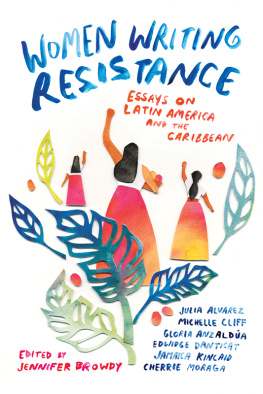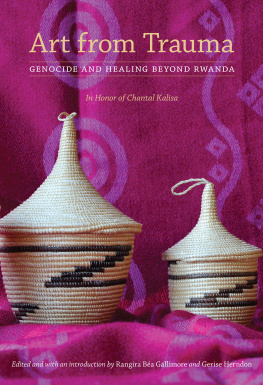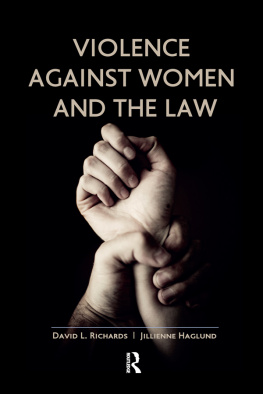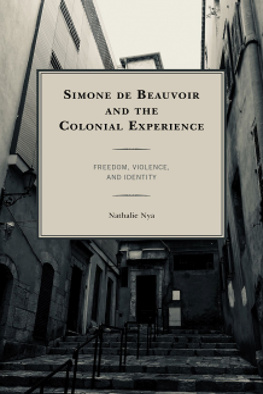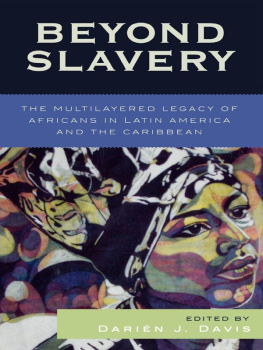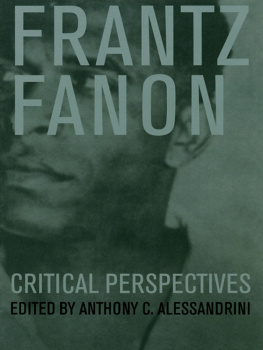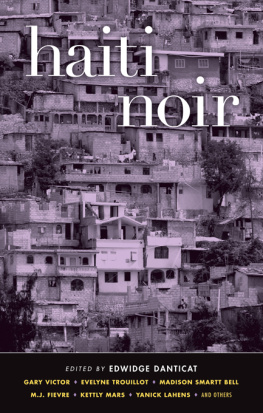Slavery in the Caribbean Francophone World

Slavery in the Caribbean FrancophoneWorld

DISTANT VOICES,
FORGOTTEN ACTS,
FORGED IDENTITIES

Edited by Doris Y. Kadish

Paperback edition, 2016
2000 by the University of Georgia Press
Athens, Georgia 30602
www.ugapress.org
All rights reserved
Designed by Betty Palmer McDaniel
Set in 11/13 Fournier
by G&S Typesetters, Inc.
Most University of Georgia Press titles are
available from popular e-book vendors.
Printed digitally
The Library of Congress has cataloged the hardcover
edition of this book as follows:
Slavery in the Caribbean Francophone world : distant voices,
forgotten acts, forged identities / edited by Doris Y. Kadish.
xxiii, 247 p. ; 24 cm.
Based on a conference held at the University of Georgia in Oct. 1997.
Includes bibliographical references (p. 22535) and index.
ISBN 0-8203-2166-4 (alk. paper)
1. SlaveryWest Indies, FrenchHistoryCongresses.
2. Slave insurrectionsWest Indies, FrenchHistory
Congresses. 3. SlavesWest Indies, FrenchSocial
conditionsCongresses. I. Kadish, Doris Y.
II. University of Georgia.
HT1107.S58 2000
306.3'62'0972976dc21 99-37913
Paperback ISBN 978-0-8203-5007-3
FOR
Maryse Cond and Freda Scott Giles
who made the past come alive
AND
IN MEMORY OF
Kimberly Hanger

Contents

DORIS Y. KADISH
CATHERINE REINHARDT
JOHN CLAIBORNE ISBELL
Transmitting the Sense of Property:
Reporting on a Slave Massacre in 1847
GABRIEL MOYAL
Haitian Contributions to American History:
A Journalistic Record
LEARA RHODES
The Tricolor in Black and White:
The French Revolution in Gabriels Virginia
DOUGLAS R. EGERTON
Greedy French Masters and Color-Conscious,
Legal-Minded Spaniards in Colonial Louisiana
KIMBERLY S. HANGER
Francophone Residents of Antebellum Baltimore
and the Origins of the Oblate Sisters of Providence
DIANE BATTS MORROW
ALBERT VALDMAN
From the Problematic Maroon to a Woman-Centered Creole Project
in the Literature of the French West Indies
A. JAMES ARNOLD
Exorcising Painful Memories:
Raphal Confiant and Patrick Chamoiseau
MARIE-JOS NZENGOU-TAYO
From the Plantation to the Penitentiary:
Chain, Classification, and Codes of Deterrence
JOAN DAYAN
DORIS Y. KADISH
Acknowledgments

This book grew out of a conference on Slavery in the Francophone World that was held at the University of Georgia in October 1997. I wish to express my gratitude to all those who provided papers, responses, and comments on that occasion and to the many other faculty, students, and members of the public whose active participation gave new meaning in the 1990s to the tragic events that occurred in France, the United States, and the Caribbean two centuries earlier.
Special thanks are due to those colleagues who graciously offered me their literary and historical expertise (Carrol Coates, John Inscoe, and Lester Langley) and to those other colleagues (Freda Scott Giles and Jean-Pierre Piriou) who helped me to realize my dream of producing Maryse Conds In the Time of the Revolution. The production of that play was an integral part of my project, as I explain in the closing chapter of this book. Finally, I wish to express my appreciation for the moral support and assistance with details that I received from Myrna Becker, Leara Rhodes, and Raymond Woller and for the wonderful advice I received at all steps along the way from Karen Orchard of the University of Georgia Press.
Preface
DORIS Y. KADISH

This book includes three parts dealing with three geographical areas: France, the United States, and the French West Indies. Part 1 begins in France in 1789 and closes with an episode from 1847, a year before abolition brought an end to direct French involvement in slavery in 1848. Part 2 dwells on the United States, beginning in Georgia with the participation by some of the future leaders of the Haitian revolt in the American Revolution and going on to consider the impact of the waves of immigration to the United States starting in the 1790s and the repercussions of Francophone slavery in the states of Virginia, Louisiana, and Maryland. Part 3 looks at the Caribbean, beginning with Creole as the language of slavery in the colonial period and turning then to writers from Martinique and Guadeloupe in the contemporary period who are grappling with the meaning of their history under slavery. The book concludes with a fourth part containing two assessments of the legacy of Francophone slavery, one for the United States, the other for the Caribbean. Placing France first, the United States second, and the Caribbean last in the organization of this book in no way reflects the political or cultural importance of those locations but rather their chronological position in the unfolding of historical events.
The essays presented here, of course, cannot begin to cover the full range of literary and historical topics in Francophone slavery studies. The choice of topics here is of necessity limited and attributable to the circumstances of the interests of the participating scholars. The significance of these essays lies less in their comprehensiveness than in the variety of approaches they exemplify. One of the goals of this book is to make the point that different scholarly methods bear different but equally enlightening results. Within the pages of this book those methods include approaches within the fields of literature, social history, linguistics, and journalism.
Although the formal organization of this book is chronological and geographical, its underlying structure consists of a series of interrelated and overlapping themes that cross boundaries of time and place and that center on the participants rather than on the events as such. That is not to say that considerable work does not remain to be done in unraveling the vast web of political, economic, and military acts that produced the system of Francophone slavery and led to the revolutionary events in the French Caribbean. Historians continue to piece together the complex puzzle of the events surrounding the Haitian Revolution and its aftermath. But this volume has a different purpose. It contributes to the growing body of scholarship that focuses more on social and cultural issues than on political, military, or economic matters and that turns its attention to the lives of the participants: their struggles, their aspirations, their forms of expression, their legacy. All of the essays in this book aim to show, in short, who the participants were, what they said, and what they did. The essays all attempt to listen to the participants distant voices, to re-create their forgotten acts, and to grasp the nature of their forged identities.
Next page

